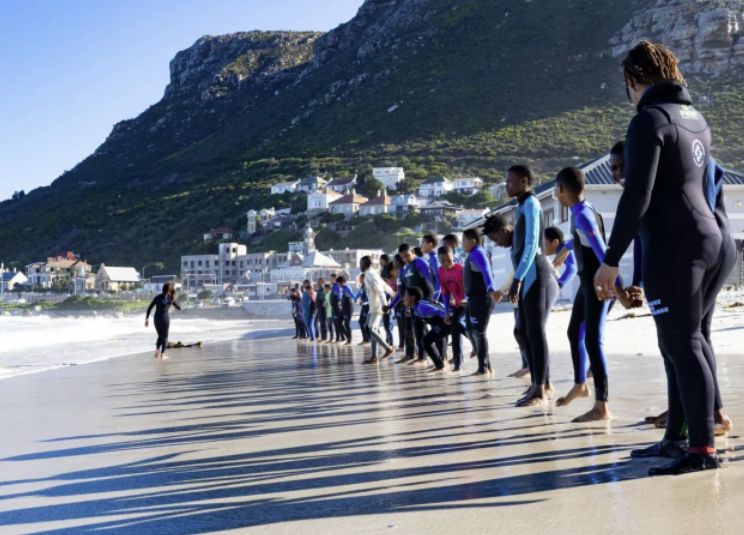Cape Town is known for its beautiful beaches and surfing culture, but not everyone can experience the therapeutic benefits of this activity. That’s where Waves for Change comes in.
Background
- Founded in 2011
- Non-profit organisation
- Provides surf therapy programs
- Aimed at young people from disadvantaged backgrounds
- Based in several townships in Cape Town.
Inspiration
- Inspired by the positive impact that surfing had on children in a township
- Founder Tim Conibear started Waves for Change
- A way to help young people who have experienced trauma, abuse, and neglect
- Develop resilience and improve their mental health and well-being.
Programme
- Run by trained local community members who act as mentors
- Provide support to the young participants
- Uses surfing to help young people build confidence, trust, and healthy relationships with their peers and mentors.
- Includes various activities to build life skills, including yoga, mindfulness, and social skills training.
Recognition
- Received international recognition
- Featured in some documentaries and media outlets
- Received numerous awards and grants, including the Laureus Sport for Good Award and the ISPS Handa Foundation grant.
Sustainability
- Committed to sustainability
- Certified member of the 1% for the Planet initiative
- Donating 1% of its annual revenue to environmental causes.
Townships
- The Waves for Change program operates in some townships in Cape Town, including Masiphumelele, Khayelitsha, and Monwabisi.
Impact
- Equipping disadvantaged youth in Cape Town with the tools they need to overcome adversity and build a brighter future.
In conclusion, Waves for Change is a shining example of how surfing and other activities can promote positive Change in disadvantaged communities. Waves for Change’s commitment to sustainability and environmental causes also demonstrates its dedication to positively impacting the broader community.








